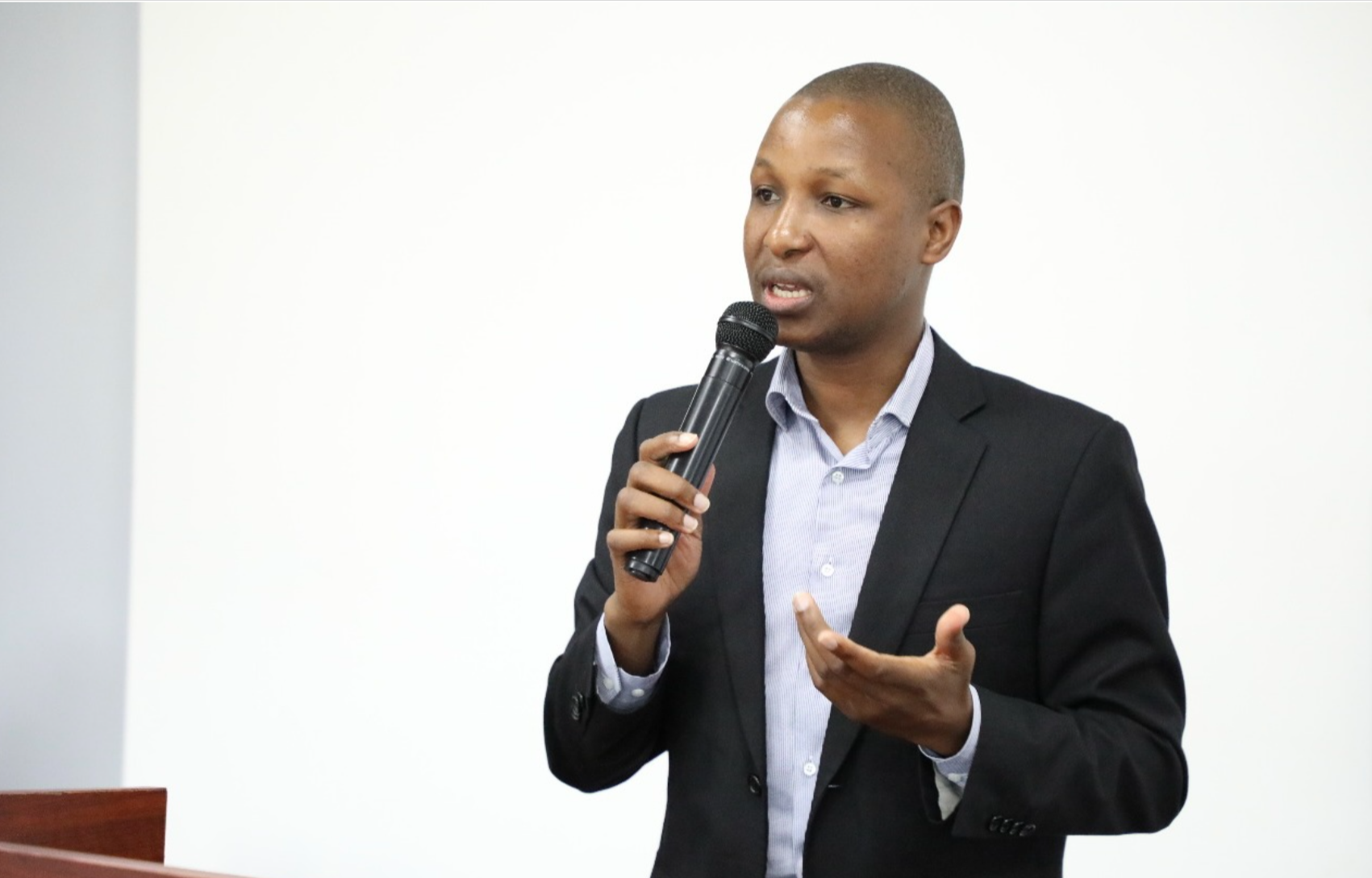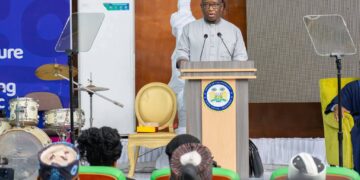Background
Climate change is a critical global issue as its impact has far-reaching consequences at the environmental, societal and economic levels, and demands commitments and active response from all sectors of work and life. In the education and training sector, UNESCO and IGAD (The Intergovernmental Authority on Development) have been advocating for the effective transmission of knowledge and skills needed to prevent and adapt to climate change through mainstreaming of climate response. To achieve this, UNESCO and IGAD are assisting TVET agencies and institutions in the development and implementation of green strategies to transform their learning and training environments, in fulfillment of their role in skilling learners, upskilling professionals in green job sectors, and re-skilling those affected by job losses due to the green transition. TVET can address knowledge and skills challenges to achieve the SDGs as well as transmission of the right mindset and attitude among trainees and the future workforce through well-designed education and training systems, especially in displacement affected communities.

While focusing on TVET agencies and institutions, it is also important to accompany these efforts with stimulation of new knowledge production on resilience and adaptation to climate change, so as to secure a holistic approach to stimulate the discussion that will inform mindset changing and influence policy action for the foreseen repositioning of the role of TVET in the IGAD region. Besides, relevant interventions targeting communities are all the most important, both for awareness raising and sensitization as well as for leveraging on indigenous knowledge that could also stimulate innovative solutions for resilience and adaptation by the TVET sector.
Context
The IGAD region, which is home to over 300 million people, is one of the most vulnerable areas to climate change. As one of the regions in the world where extreme climatic impacts have resulted in the loss of lives and damage of properties, due to frequent and intense drought and floods, unpredictable rainfall patterns, high temperature variability, food insecurity and water scarcity, which occur at frequent intervals and have become common scourges. UNESCO and IGAD thus seek to build the requisite capacity through cooperation with key actors such as the Africa Development Bank (AFDB) in transforming the TVET landscape in the IGAD member states by identifying effective and appropriate international response, in accordance with their common but differentiated responsibilities and respective capabilities and their social and economic conditions. This will require supporting IGAD member states in putting in place policies and strategies that would encourage sectors of the economy to shift their operations to greening practices.
Why Green Skills?
Today’s digital economy is marked by rapid technological change, expanding markets, digitalization of workplaces and shifts in labor and skills needs. At the same time, we are currently witnessing a long-term global disaster in the form of the COVID Pandemic, which had paralyzed entire economies and education systems in many parts of the world. When the Pandemic hit the world, the world turned into e-mode; but not in Sub-Saharan Africa, which lacked ICTs and energy access; e.g. over 50% of schools in SSA have no energy access, not to talk of ICT. So this has pinpointed the need to fast track (R)Energy and ICT in Africa, not just to mitigate COVID lock down impacts, but now also as a strategy to fast track SDG achievement, including for those most left behind in rural off-grid situations; just imagine the catalytic effect RE+ICTs could have. This calls for a bold strategy with science and engineering at its core.
The IGAD region needs to emphasize the role of science, technology and innovation for accelerating SDGs implementation. This initiative builds on Kenya’s Vision 2030 to ensure access to the internet, enhance last mile connectivity, and enable more Kenyans onboard into the Digital economy. It will also bolster Kenya’s implementation of the AU Agenda 2063, which calls for catalyzing a skills revolution.
The question, what skills? also needs to be seen in light of the COVID-19 Pandemic, and national, regional and global responses towards building forward better, and fast track a green and digital transformation of Africa. UNESCOs ongoing cooperation here in Kenya with the TVET Authority, and other government and private partners focuses on digitisation, environmental technologies and on solar photovoltaic. These are the technologies of today for a better tomorrow. These are the skills needed for Africa’s green and digital transformation.
Indeed, there is enormous potential for the envisaged green and digital transformation in Africa to generate a wide range of new industries and employment opportunities in emerging 4th Industrial Revolution technologies, such as Artificial intelligence, nano-tech, biotech, but also in the development of environmental technologies, renewable energy and digital economy services and products.
With this in mind, UNESCO launched in 2022 the Global TVET Strategy 2022-2029, entitled Transforming Technical and Vocational Education and Training for successful and just transition. Leave No one Behind. Think about all learners in school and provide them with access to high quality online and offline curriculum. What about off-grid communities? For example Some 18 million Kenyans live without electricity. What about learners living with disabilities? What about adults, especially women, who missed out on education earlier, but are ready to learn now?
The transfer to a digital inclusive economy holds answers to these challenging questions. So we must be courageous and aim at a transformation towards an Inclusive digital and green economy.
To that effect, the UNESCO Regional Office for Eastern Africa has developed two new Priority Programmes: the first is on ICTs in Education and the second is entitled: Green skills for green jobs. These Priority Programmes, besides focusing on Green and digital skills, also aim to connect the formal TVET institutions to informal Community-level TVET, via Community Learning Centres, and as such engage in particular women and youth from even the remotest and most left behind communities. This is how we aim to achieve a catalytic effect in accelerating the green and digital transition, and advancing the SDGs, without leaving anyone behind.
The initiative will also support the repositioning of TVET institutions to be able to supply the experts and technologies required to operate a green economy revolution, much needed in the region. This will be done through building the capacity building of TVET leaders, institutions, training providers and their stakeholders in raising their awareness and mainstreaming education for sustainable development and greening TVET approaches in day-to-day operations, teaching and learning processes, training arrangements and outcomes. This will in turn see the greening of occupations with a focus on high-skilled, well-paid jobs such as in the renewable energy industries, energy efficiency and mass transit as well as other skills in agriculture, eco-tourism and waste management.
The initiative will foster regional cooperation partnerships and interactions in specific sectors to better withstand future shocks that will result from the effects of climate change, while also advocating for the effective transmission of the knowledge and skills needed to promote climate change education in technical and vocational education and training. The initiative will further support the establishment of Centres of excellence for vocational education that will ensure appropriate training available for the labour force in the IGAD region adapted to meet the needs of a green and sustainable economy.
Objectives
To improve the TVET policy and legislative environment and regional qualifications frameworks to build and enhance climate change resilience and adaptation among the IGAD countries
To Strengthen and standardize of the TVET Curricula across IGAD countries
To facilitate the implementation of a harmonized regional TVET qualifications framework, including recognition of prior learning being developed by IGAD
To support the establishment of a regional training of trainer Centre of Excellence for TVET
To improve the capacity for 1500 TVET managers and training of trainers (ToT) in the IGAD region to accelerate green and digital transformation as a way to build on climate change resilience and adaptation.
To promote and expand Community TVET
To build/strengthen regional coordinating mechanisms for implementation, monitoring of progress and dissemination of lessons/best practices.




















































































 EduTimes Africa, a product of Education Times Africa, is a magazine publication that aims to lend its support to close the yawning gap in Africa's educational development.
EduTimes Africa, a product of Education Times Africa, is a magazine publication that aims to lend its support to close the yawning gap in Africa's educational development.
